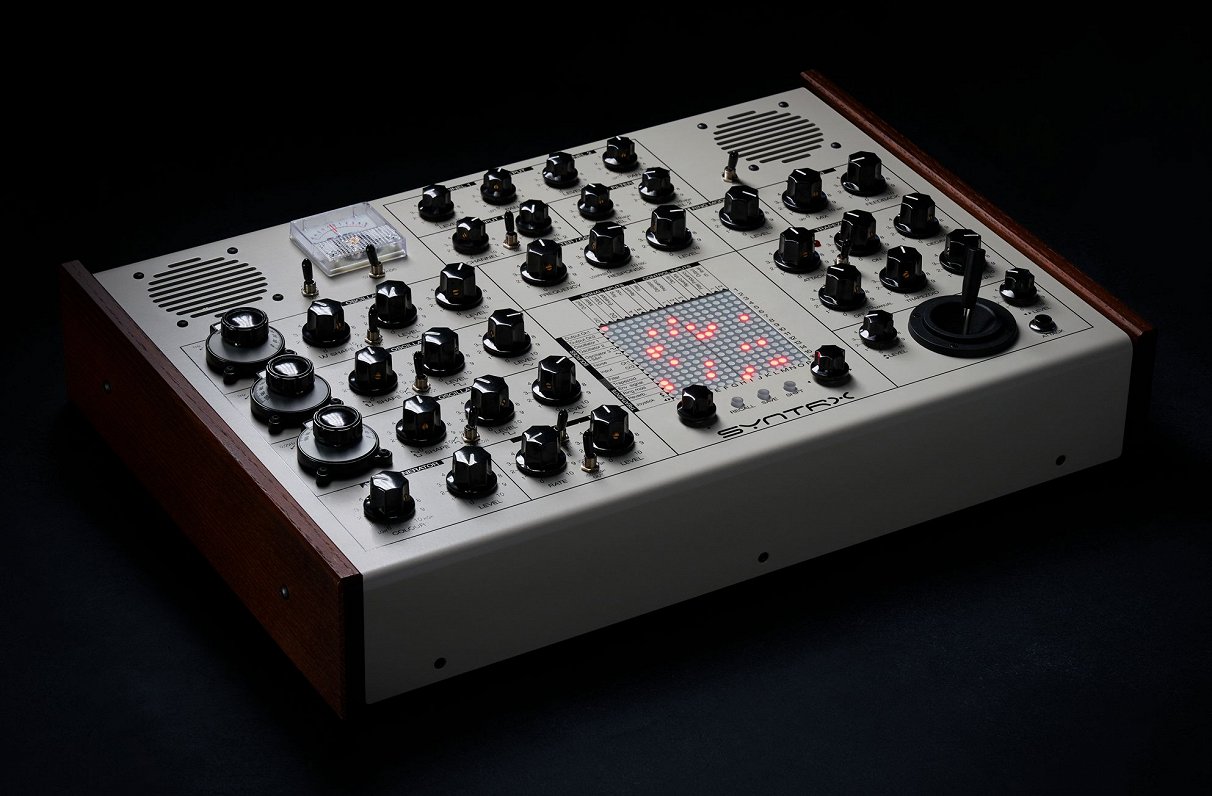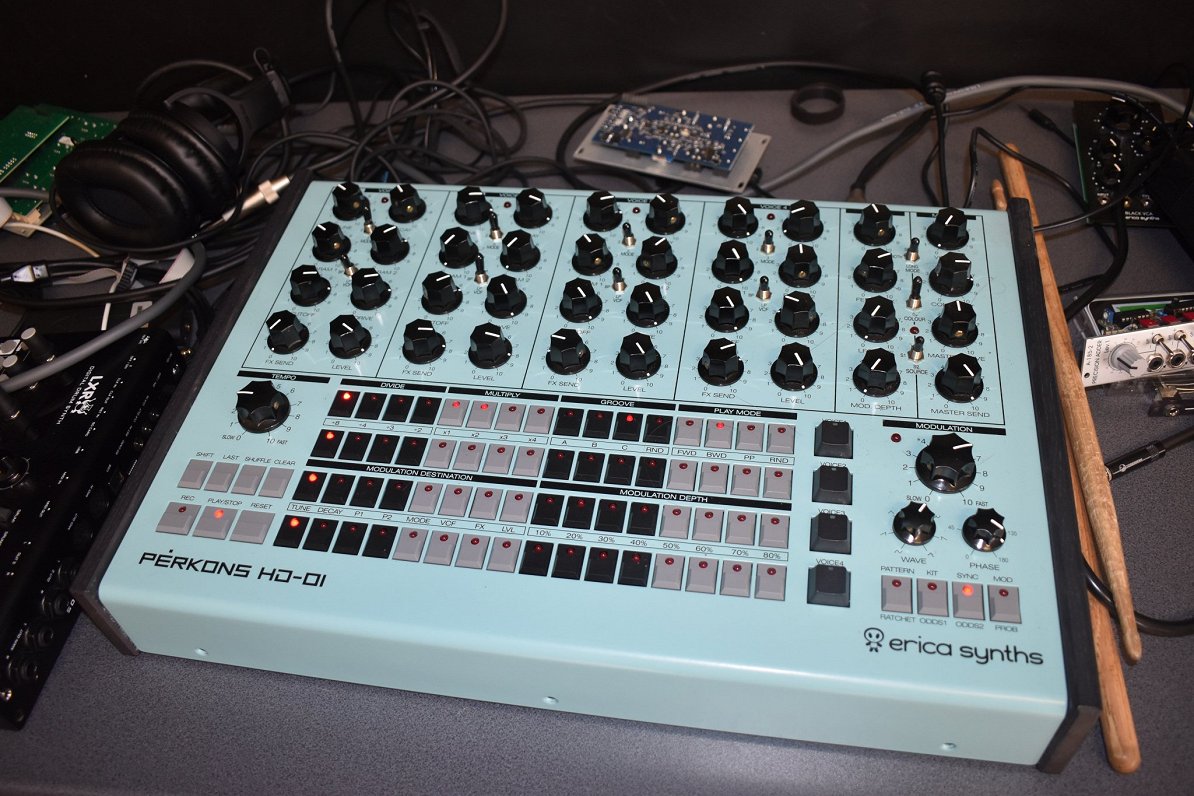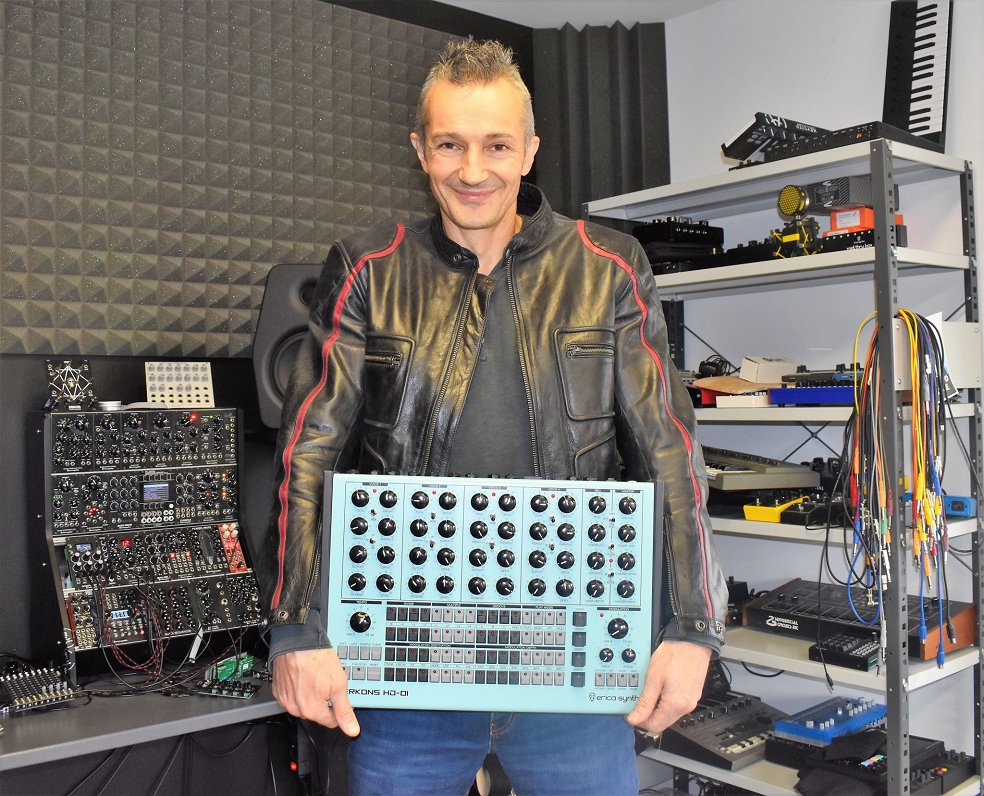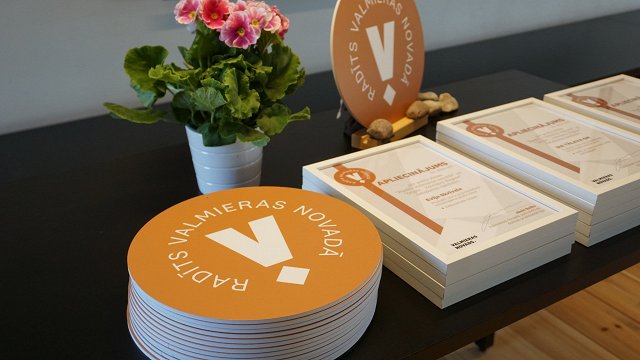Sporting a leather jacket and a punkish hairdo, Ģirts Ozoliņš doesn’t look like your typical business mogul. But with echoes of Hewlett-Packard’s legendary beginnings in a Californian garage, this laid-back Latvian is the author of another remarkable, out-of-nowhere success story.
Ģirts’ began his road to the top by soldering together modules for synthesizers in his bedroom. Less than a decade later, his Riga-based firm Erica Synths has become one of the world’s most admired makers of electronic music equipment, supplying gear to Depeche Mode, The Chemical Brothers and other stars.
“In quite a short time we’ve done some big things in a global context,” says Ģirts. “Our instruments look good, they’re technically well made, they sound great and are a joy to play.”
Ģirts’ late-Soviet-era childhood in the Kurzeme village of Dunalka was about as far from Silicon Valley as it gets. But his thirst for innovation was still impressive. At age 12, he found a book on amateur radio technology in the school library and started soldering antennas on the schoolhouse roof. He later became a physics teacher and made an electronic constructor kit to get his son interested in science. One suspects the kid didn’t get much time with this toy, as Ģirts found ways to produce musical sounds with it, then started putting together components from global manufacturers, and eventually discovered that people would pay money for his stuff.

Together with three partners, he founded Erica Synths in 2015 to further develop synthesizer modules. By combining digital technology with old-school, analogue push buttons and switches, they produce a unique sound. And combined with interfaces that make them a joy to play, they have received rave reviews.
“Of course, how it sounds is subjective,” says Ģirts. “But the famous Hollywood composer Hans Zimmer uses two eurorack producers – us and a British firm. And he says he hears the difference! And if he thinks our instruments sound great, then we have to take his word for it!”
According to Ģirts, the firm is increasingly focussing on stand-alone synthesizers rather than separate modules, since mixing bits and pieces from different manufacturers doesn’t provide the full experience that Erics Synths can give. The firm is currently testing an innovative drum machine called “Pērkons” (meaning “thunder” in Latvian), which recently won a prize as the best new instrument at a prestigious trade show in Berlin.
“Musicians who know something about drum machines immediately recognise that this is something special,” says Ģirts.
While 99% of Erica Synths’ products are exported, they are entirely made in Latvia. The eight-person team designs the instruments and builds prototypes in-house, then outsources manufacturing of both the electronics and plastic casings to factories in Rīga and Daugavpils. Ģirts believes Latvian electronics makers established in recent decades are world-class, and German, Dutch and Belgian music equipment makers have followed Erica Synths’ example by shifting production from China to Latvia.
“So we’ve indirectly helped to boost Latvia’s exports,” says Ģirts.

The company has no plans to leave Latvia, but it is in the process of moving its Rīga office. Its old base in the Adrejosta district, a spawling, rundown port area turned hipsterish arts quarter, is slated for redevelopment. At new, custom-built headquarters on the other side of the Daugava River, the firm will continue its tradition of holding residencies where musicians and composers create new works on the latest equipment, and provide a video studio.
“It’s one thing to export instruments, but we also want to support creative culture here in Riga, and electronic music is an important part of that,” says Ģirts.
While some of his colleagues are award-winning musicians, Ģirts admits he just dabbles in playing. But there’s one hobby they all share. Pointing to a bunch of motorcycle helmets on the wall, Ģirts says that all new members of staff are obliged to get a motorbike rider’s license. And there’s a garage on site to park their rides.






























